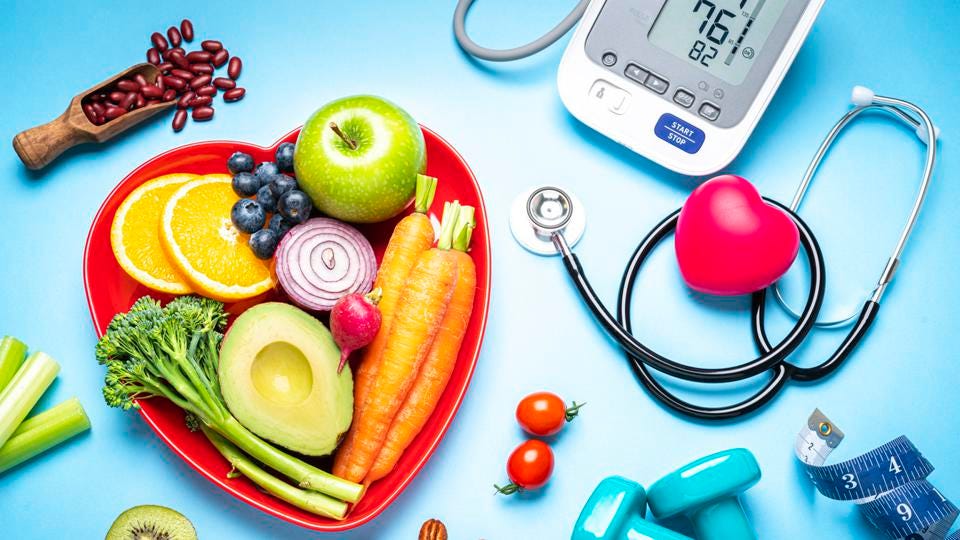General Health Tips & News
Effective Ways to Lower High Blood Pressure (Hypertension)
By A.S. (staff writer) , published on November 02, 2022

Medicine Telehealth Health Hypertension Management
Hypertension, commonly known as high blood pressure, is a potentially fatal disorder that damages the heart. It affects one out of every three individuals in the United States and one billion people worldwide. Untreated hypertension increases the risk of heart attack, stroke, kidney failure, and other diseases.
Lifestyle modifications and medicine are the most commonly employed strategies against hypertension. While lifestyle changes alone can help some people lower their blood pressure, the two techniques are complementary. Here we have discussed seven effective methods to lower your high blood pressure.
1. Walk and Exercise Regularly
Exercise is one of the most effective ways to reduce high blood pressure. Regular exercise strengthens and improves the efficiency with which your heart pumps blood, lowering the pressure in your arteries. Going to the gym isn't the only way to get some exercise. It might be gardening, car washing, or cleaning the yard.
The activities that raise your heart rates, such as walking, dancing, jogging, cycling, and swimming, are the best ones to lower your high blood pressure. In reality, 150 minutes of moderate activity, such as walking, or 75 minutes of intense exercises, such as running, per week can help decrease blood pressure and improve cardiac health.
2. Lose Some Pounds
Losing weight is the best way to lower your high blood pressure. Your blood pressure drops by 5 to 20 points for the loss of every 20 pounds. Weight loss can also help with sleep apnea which makes your heart beat erratically and elevates blood pressure. You can gradually lose weight with a balance of good diet and exercise.
3. Dietary Modifications
Another efficient way to lower your blood pressure is to maintain your diet.
-
Eat Low-fat, low-salt, and low-calorie foods such as fresh vegetables and fruits, whole-grain rice, and pasta.
-
Limit the use of sugar, salt, and caffeine.
-
Avoid butter and margarine, fatty meats, whole milk dairy products, processed foods, and salted snacks.
-
Consult your doctor to inquire about the diet of the DASH (Dietary Approaches to Stop Hypertension). The DASH diet promotes eating fruits, vegetables, and whole grains while lowering sodium intake.
-
Many people believe that the DASH program is ideal for managing and lowering blood pressure.
4. Stop Smoking
Smoking increases blood pressure and heart rate. Tobacco contains hypertensive agents that result in inflammation, and constriction of blood vessels, culminating in high blood pressure. Quitting smoking helps lower high blood pressure and improves your overall health.
5. Reduce Your Stress Levels
High blood pressure is exacerbated by stress. When you're stressed all the time, your body is constantly in an active state. Physically, this means a higher heart rate and constricted blood vessels leading to hypertension.
Many studies have looked into how stress reduction can lower your blood pressure. Here are two evidence-based suggestions to cope with stress:
Play some relaxing music: Cool music can assist in the relaxation of your nervous system. Managing stress by soothing music effectively complements other blood pressure treatments.
Work Less: Stressful job situations are also linked to high blood pressure. Work for fewer hours if you are suffering from hypertension.
6. Try Yoga or Meditation.
Meditation and mindfulness have long been used and studied as stress-reduction techniques. Yoga, which often entails breathing control, posture, and meditation practices, can also help in lowering stress and blood pressure.
7. Take Prescribed Medication on Time
This is the most critical step in lowering your high blood pressure. Once you have been diagnosed with hypertension, the doctor prescribes some medications to lower blood pressure. These medications are mostly vasodilator pills. You have to take these pills daily, without any breaks, otherwise, they won't work to lower your high blood pressure.
The problem is many patients forget to take these pills on time. Using hypertensive agents such as salt, in daily life and not taking medication on time can further deteriorate your health. But, you need not worry as The Smart Pill Dispenser can help you cope with this problem. The Pill Dispenser enables you to organize and take your prescriptions on time, in an orderly and organized manner. It reminds you to take the medication on time so you won’t miss a dose.
The smart pill dispenser is safe and easy to use. Just rotate and take out the pill. As the dispenser has a small size, you can keep your medication with you wherever you go.
References
-
Feehally J, et al., eds. Nonpharmacologic prevention and treatment of hypertension. In: Comprehensive Clinical Nephrology. 6th ed. Elsevier; 2019. https://www.clinicalkey.com. Accessed April 20, 2022.
-
AskMayoExpert. Hypertension (adult). Mayo Clinic; 2021.
Find articles related to: Medicine Telehealth Health Hypertension Management
More articles about General Health Tips & News
Back to the Health Tips Index




